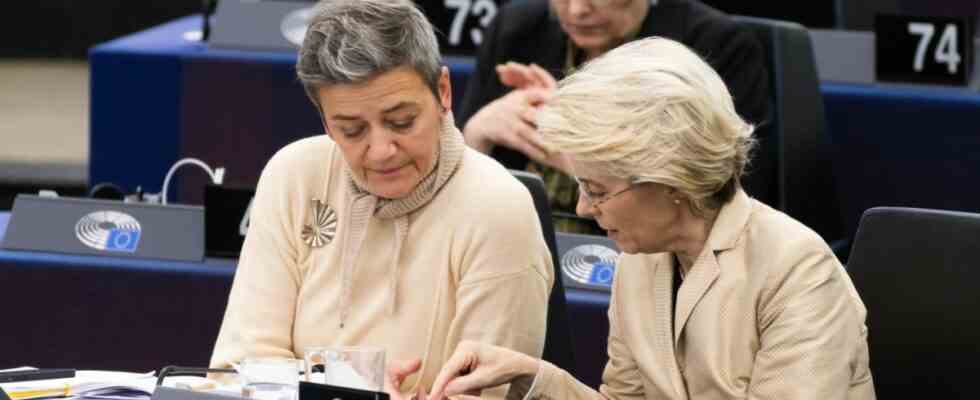In the future, EU governments should be able to pay more and more subsidies to companies that invest in green technologies. Commission President Ursula von der Leyen announced on Wednesday in the European Parliament that her authority would present more flexible rules for state aid as early as January. The Commission is responsible for approving these and checking whether they distort competition. With the initiative, the Germans are responding to the US government’s controversial subsidy package.
This so-called Inflation Reduction Act (IRA) is massively promoting the green transformation of the American economy. But the State Aid Act disadvantages European companies that want to export environmentally friendly products to the United States, such as electric cars. Because President Joe Biden wants to support US factories in particular with the program. The Commission and EU governments therefore fear that local companies could relocate plants to the USA. “We have to give our answer, our European IRA,” von der Leyen said.
Industrial policy and relations with the USA are also among the topics at the EU summit, at which the 27 heads of state and government are meeting in Brussels this Thursday. In a letter to the participants, von der Leyen provided more details about their plans. She had already presented the rough concept in a speech a week and a half ago. In the three-page letter, the CDU politician now states that the strict subsidy rules should be relaxed “for a few years”. Governments should be able to support faster and more extensive investments in green energy or climate-friendly industrial production or the construction of factories for important green goods.
However, the softening of the subsidy rules leads to a problem: In financially strong and large member states like Germany, governments can use the new freedom much better to promote their companies. Clammy governments like Italy won’t be able to keep up. German companies could therefore enjoy unfair advantages, the common internal market would be distorted. Von der Leyen therefore emphasizes that there must also be more EU funding: “Our European industrial policy requires joint European funding.” The head of the Commission wants to set up a so-called European Sovereignty Fund to support important industrial projects. She will present concrete concepts in the summer.
Does the EU have to go into debt again?
In any case, the authority wants to cash in by the summer and check whether the multi-year EU budget plan for 2021 to 2027 needs to be increased. In this way money could be raised for the new pot. In that case, however, large net contributors to the Brussels budget, such as Germany, would have to make additional payments. Another possibility would be for the Commission to fill the sovereignty fund with new common EU debt. That would also be tricky for Berlin: Federal Finance Minister Christian Lindner has already made it clear that he rejects this. “With a sovereignty fund (…) a new attempt should not be made for joint European borrowing,” said the FDP chairman last week after von der Leyen’s speech on the subject. On the other hand, the federal government supports the planned relaxation of the state aid rules.
However, the Commission is not just relying on additional subsidies. At the same time, she is trying to mitigate the harmful consequences of the American package in talks with Washington. It is clear that Biden will no longer change the law. However, the US government still has to issue the implementing regulations, and Brussels is hoping for a concession here.

